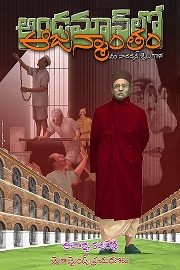Festival of Diwali is celebrated according to the lunar calendar, the dates are different each year. In 2021, Diwali falls on November 4th w...
Historically, Diwali has been called “Naraka Chaturdashi” because Narakasura, a very cruel king, was killed by Krishna on this day. Because of that, this celebration happened in such a big way. Evil need not necessarily come in the form of demons. Desperation, depression and frustration can cause much more damage to one’s life than the demons that you have not seen. Diwali is a reminder to slay all that is negative in our life.
Narakarsura was not his original name, but he gave everyone hell, so they called him Narakasura. Narak means hell – one who is causing hell to everyone is a Narakasura. When this causing of hell was brought to an end by Krishna, people celebrated by lighting lamps in every house. The Narakasura event supposedly happened much later, but the culture and tradition of lighting lamps around this time goes back twelve to fifteen thousand years. People realized that life hits a point of inertia at this time of the year. The idea is that if you yourself are not living like a cracker, fully alive and on, at least crackers around you could wake you up a little bit. That is why on Naraka Chaturdashi, from around four o’clock in the morning, all over the country, crackers are burst, so everyone wakes up, comes alive.
Diwali is a symbol of beating inertia, because inertia is the source of narak, or hell. Once inertia sets in, you will not go to hell – you will be hell. Even when you are all by yourself, this will go on endlessly – without anyone else’s doing. If something happens, people suffer. If nothing happens, they suffer even more. One of the biggest sufferings for a human being is that nothing happens. So, Diwali is very significant. Many have not bothered to outsource their narak or hell – they are on self-help. In Anger, Jealousy, Hate, and Fear, you create narak and become a Narakasura. If these are taken away, a new light shines.
The celebration is auspicious in so many different ways. On this day, it is said that if someone needs money, Lakshmi will come in. If someone wants health, Shakti will come in. If someone wants knowledge, Saraswati will come in. These are dialectical ways of expressing that it will lead to wellbeing.
In the Indian culture, there was a time when there used to be a festival every day of the year – 365 festivals in a year. The idea behind this was to make our whole life into a celebration. Today, maybe only thirty or forty festivals remain. We are not able to celebrate even those now because we have to go to office or do something else daily. So people usually celebrate only around eight or ten festivals annually. If we leave it like this, the next generation will not have any festival. They will not know what a festival is. They will just earn and eat, earn and eat – they will go on and on with just this. It has already become like this for many people. A festival means they give you a holiday, and you wake up only at noon. Then you just eat more, go for a movie or watch television at home. And only if they take some external stimulants, will these people dance a little. Otherwise they will not sing or dance. It wasn’t like that before. A festival meant that the whole town would gather in a place, and there would be a big celebration. A festival meant we got up at four in the morning, and very actively, lots of things happened all over the house. To bring back this culture in people.
In a true testament to unity in diversity, Diwali is celebrated quite differently across India. One thing that remains common is that every town, city and village is lit up with thousands of lamps everywhere. This lighting of lamps symbolizes the victory of light over darkness.
In North India, Diwali is seen as a celebration of Lord Rama’s return to Ayodhya after fourteen years in the forest. On this moonless night, people are said to have welcomed him home by lighting thousands of lamps in his honor.
In South India, Diwali is celebrated because on this day, Krishna slew the demon Narakasura.
In western parts of India, Diwali is considered the beginning of a new year and the central theme is worshipping Lakshmi, the goddess of wealth and prosperity.
In eastern parts of the country, the day of Diwali is devoted to Kali and is celebrated as Kali Puja.
Diwali always starts with a thorough cleaning and decoration of the home. This is also a time to make traditional rangolis. People visit each other, dress up resplendently, exchange gifts, conduct rituals and pujas and come together to enjoy feasts and burst firecrackers. Diwali is Children's Day in India.
Encouraging everyone to wear handloom and organic fabric and burst fire crackers also local made in this Diwali.
You must bring clarity, wisdom and wonderfulness to yourself no matter what happens around you. May this blossom in your life as a part of this Diwali. Happy Diwali.










No comments